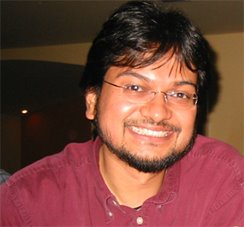 A masterpiece of visual story telling spun around the controversial practice of female circumcision in African culture.
A masterpiece of visual story telling spun around the controversial practice of female circumcision in African culture.Ousmane Sembene of Senegal is widely regarded as the father of African Cinema. The film is critical in its view of female circumcision. But Moolaadé is not a documentary. It is a story of diversity and dynamism in the fabric of ideas among the traditional and evolving cultural landscapes of African societies.



